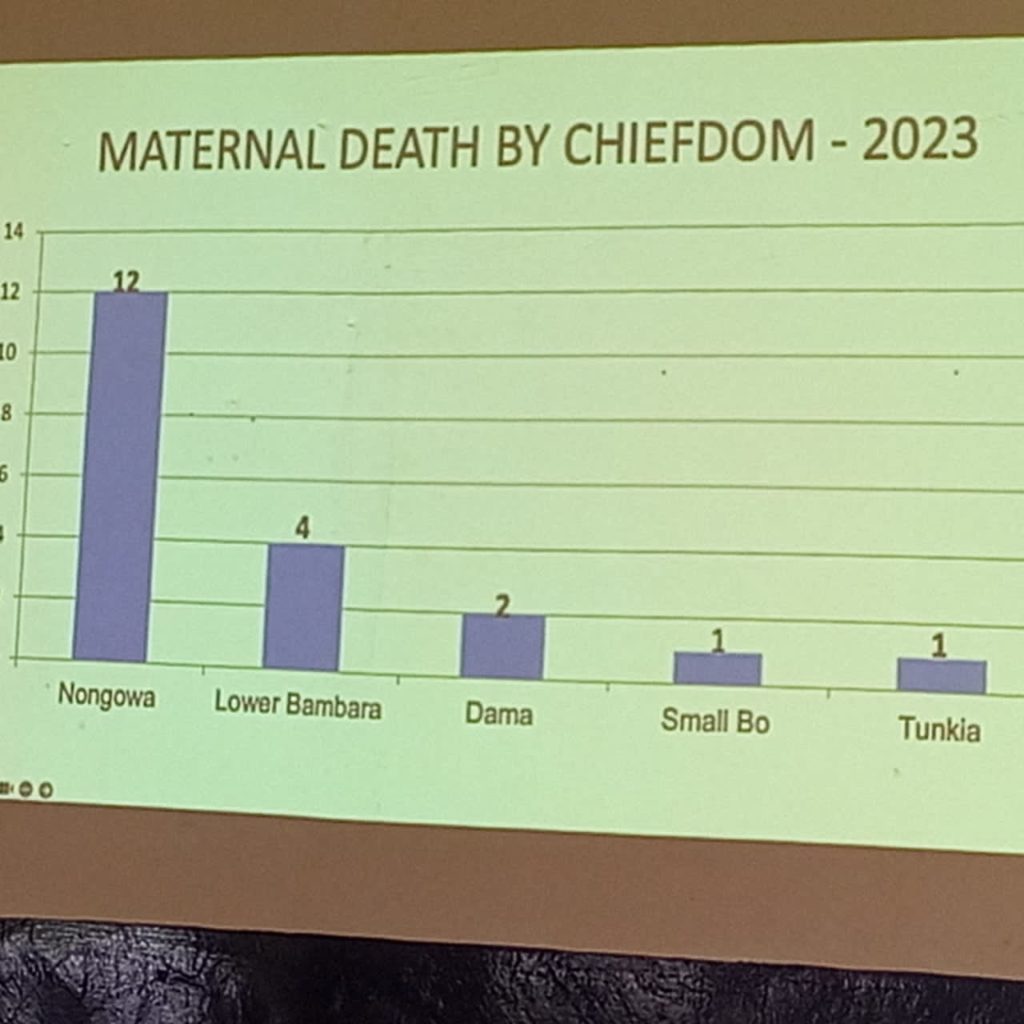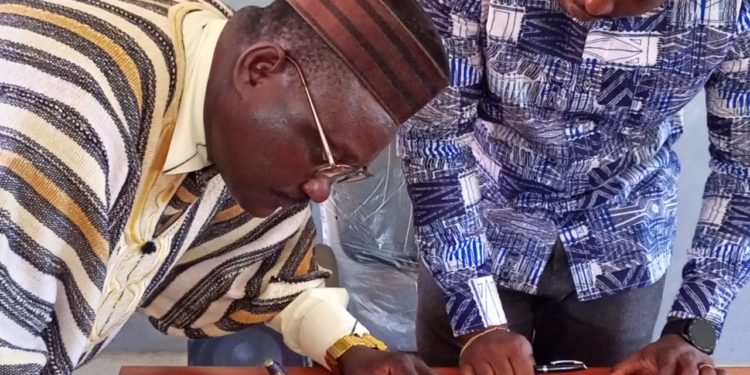By James Flee in Kenema
A rise in the number of maternal deaths has sparked concerns in Kenema, prompting radical measures by health and local authorities to curb the trend.
The District Health Management Team (DHMT) and Chiefdom authorities last week signed a set of by-laws prohibiting home delivery and other practices during pregnancy, as one response to the situation.
Data cited by district health authorities show that Kenema, which is situated in the eastern part of Sierra Leone, currently has one of the highest rates of maternal mortality in the country, and officials blamed it on delay in making the first visit to health facilities by pregnant women, among many other factors.
The signing of the by-laws took place during a one-day engagement held at the Kenema Government Hospital on Thursday, 19 October, 2023, brining together key stakeholders and partners to discuss the issue.
Francis Suma, Risk Communication and Senior Health Education Officer at the DHMT, told ManoReporters that one of the mandates of the district health team is to collaborate with Chiefdom Authorities in efforts to reduce maternal and infant deaths and other practices that negatively impact the health of the population.
All 16 Paramount Chiefs of the District and their sub-chiefs signed the document in the newly refurbished Dr Grant Conference Hall in the district hospital, committing their leadership to curbing home delivering and other sociocultural practices that lead to negative health outcomes.
Home delivery was at the heart of high maternal and infant mortality rate in Sierra Leone following the end of the civil war in 2002, which led to the establishment of the Free Health Care Programme for pregnant women, lactating mothers and children under five. Home deliveries are usually handled by untrained elderly women known as Traditional Birth Attendants (TDA), although sometimes it involves trained nurses. But whether the attendant is trained or not, when complications develop during delivery, like excessive bleeding, the chance of saving the mother or the baby is decreased by the lack of appropriate equipment.
Over the last decade, the authorities have tried to incorporate the TDAs into the formal healthcare system and provide them with training. But progress in this front has been hindered by a multitude of factors that include poor service delivery, which makes more people inclined to stay away from the facilities, thereby threatening to reverse gains realized in the last decade in maternal and infant healthcare.
Dr. Donald Samuel Grant, District Medical Officer, in a presentation during last week’s stakeholders’ engagement, revealed that most of the cases of maternal deaths in the district fall within the ages of (20 and 29).
“The major causes of the high rate of maternal mortality are home delivery and delay in referral to major government health facilities,” he said.
According to his data, in 2022, 42 women died during childbirth in Kenema, with Lower Bambara and Nongowa chiefdoms recording the highest number of cases. And between January and September 2023, 20 maternal deaths were reported, with April recording the highest.
Dr. Grant pointed out that so far in 2023, 500 children died due to illnesses preventable through immunization.
With regards to maternal deaths, five chiefdoms are of particular interest to the authorities: Nongowa, which recorded 12 deaths since January; Lower Bambara with four deaths; Dama with two deaths; and Small Bo and Tunkia with one death each.
Dr. Grant hopes that the formation and enforcement of the by-laws will change this picture and, to this end, he pleads with community leaders to support the DHMT, stating: “every case of maternal mortality is an emergency to the Ministry health.”

While hailing the DHMT for the initiative, Chief Francis Musa Kallon, Kenema City Town Speaker, wants to see collaboration at higher level in the enforcement efforts.
“We expect Members of Parliament to be included into the enforcement of these by-laws at all levels,” he told ManoReporters.
Chief Kallon also pleaded with the district health authorities and partners to help provide birth waiting homes at all the Peripheral Health Units (PHUs) in the district.
“We are ready to propagate the bye-laws and enforce them in all our 16 chiefdoms at town and village levels,” he vowed.
At the Samai Town II Community Health Center (CHC) in Nongowa Chiefdom, the In-Charge Hannah Tommy and her team are ready to deal with the situation with all the available support.
Nurse Tommy told ManoReporters the facility in the last three years (2020, 2021 and 2022) recorded high cases of material mortality, but they were able to reduce it in 2023 due to pro-active measures put in place by the DHMT.
“Maternal death has been one of the most challenging issues in the health sector in this center,” she said, citing chronic cold, Sexually Transmitted Infections and other complications during pregnancy as the main cases reported. For children under-five, she said Malaria, pneumonia and common cold at the top cases reported at the hospital.






















